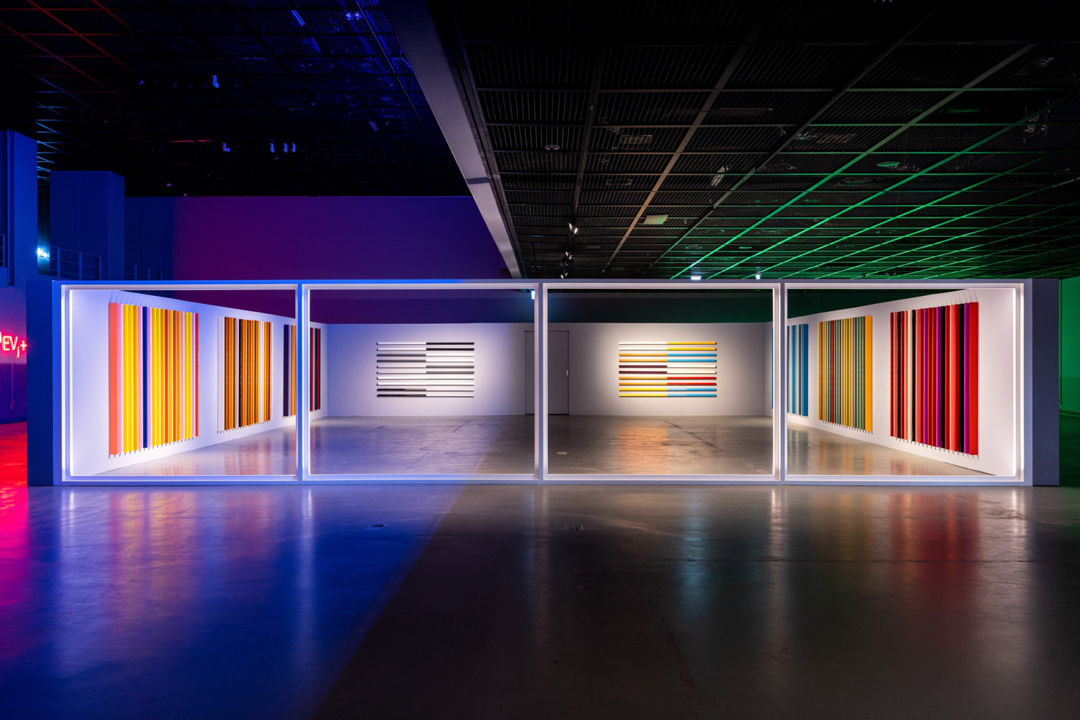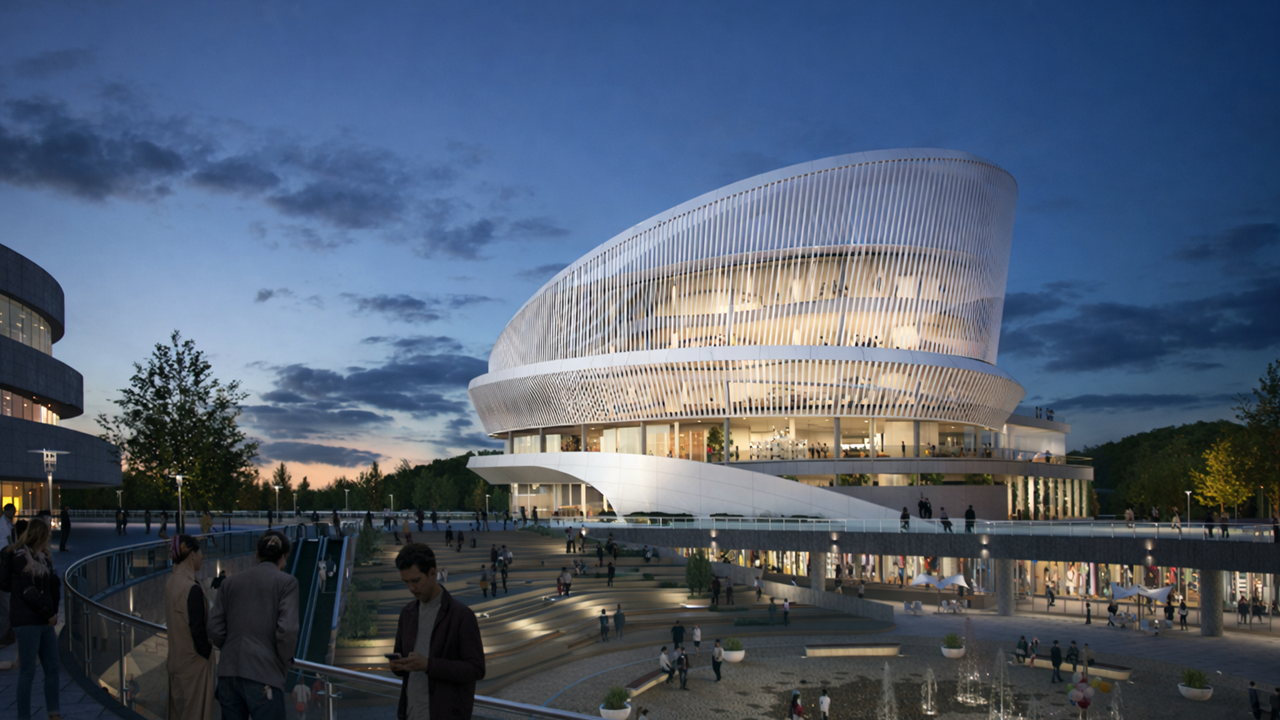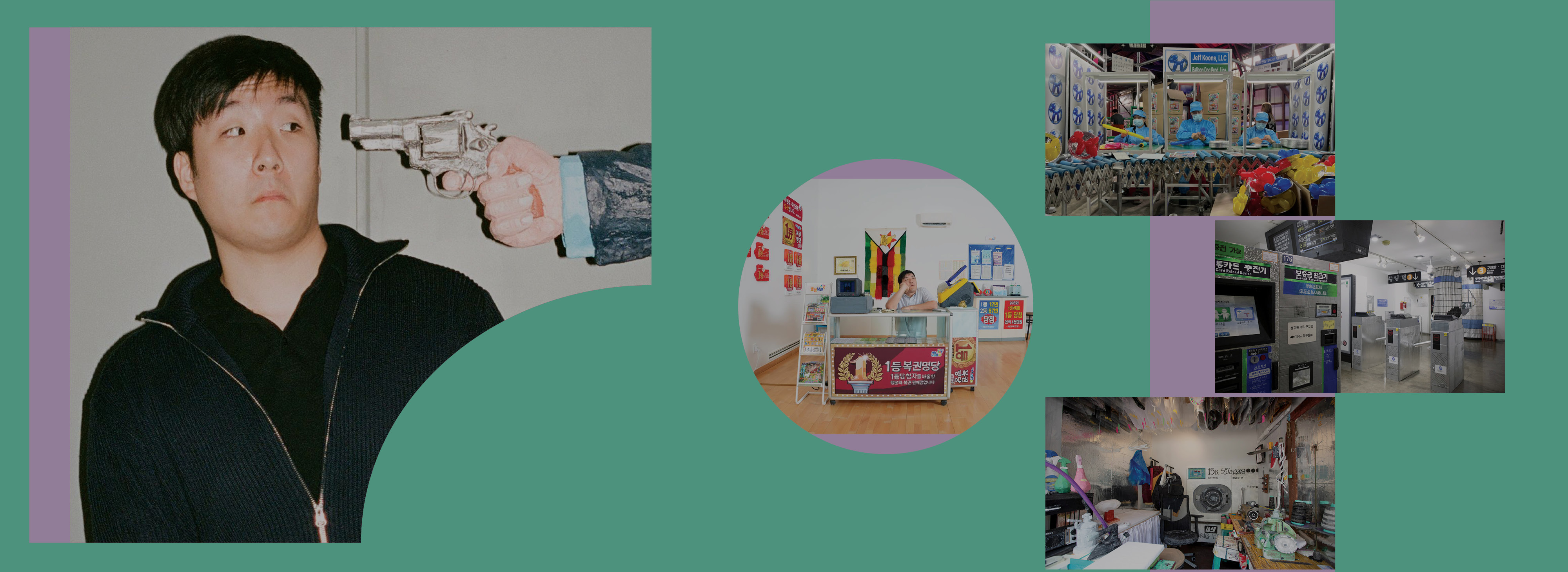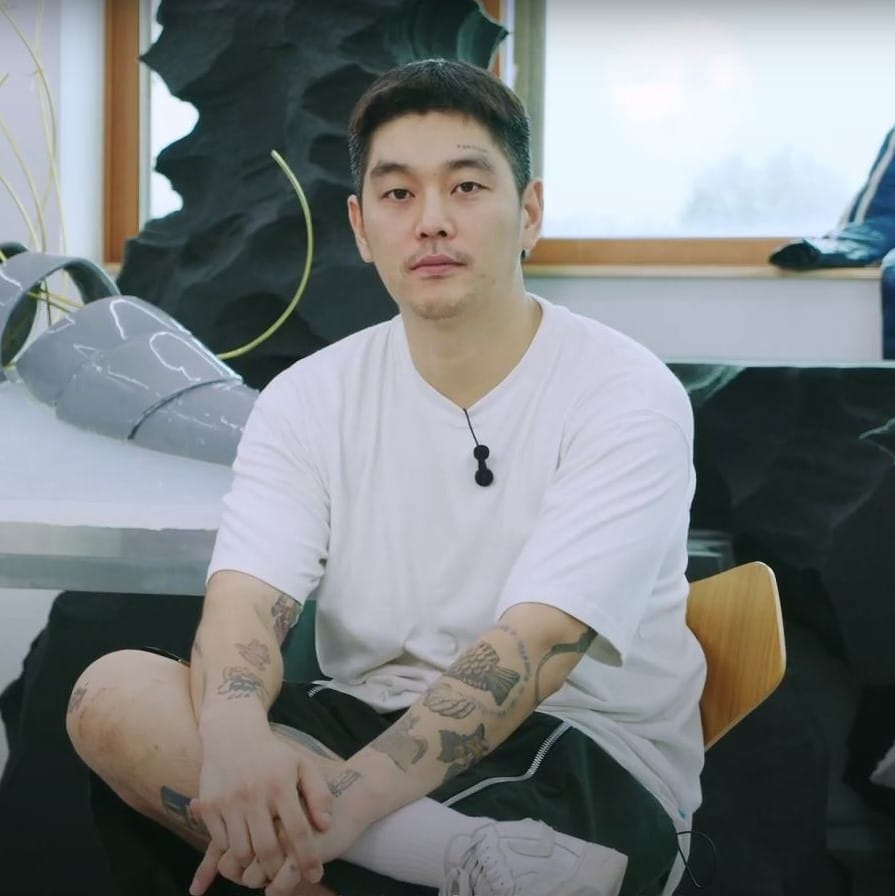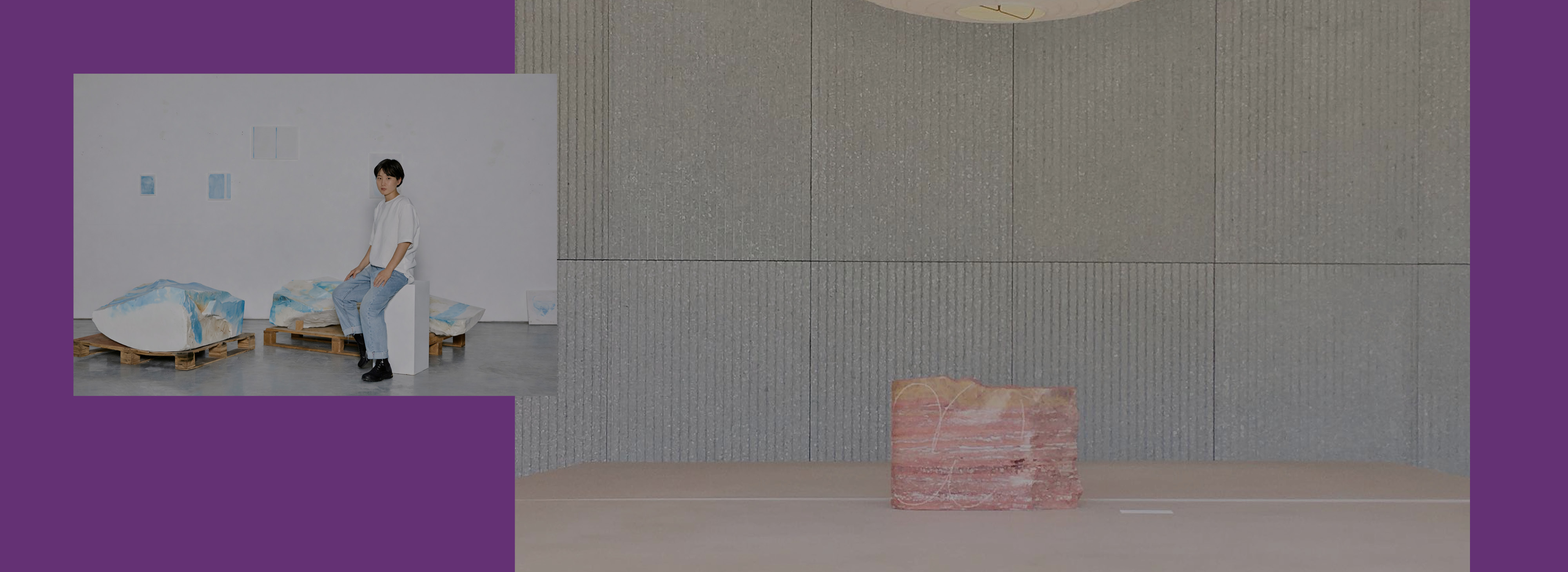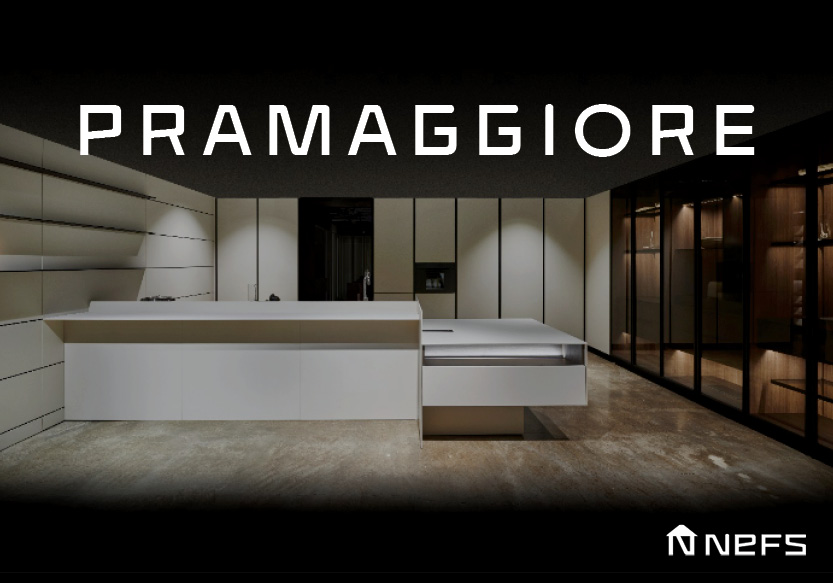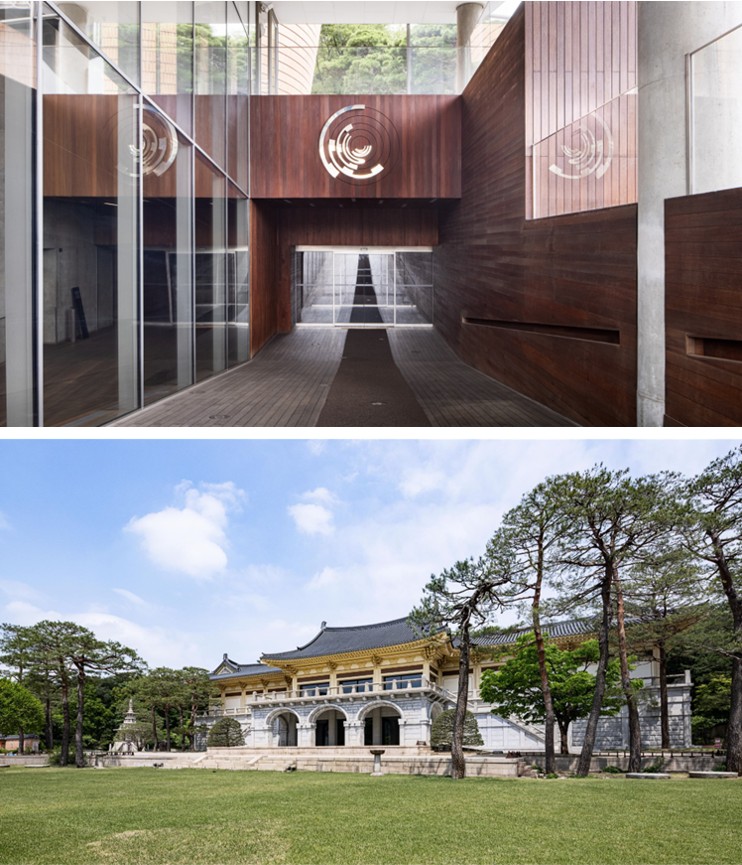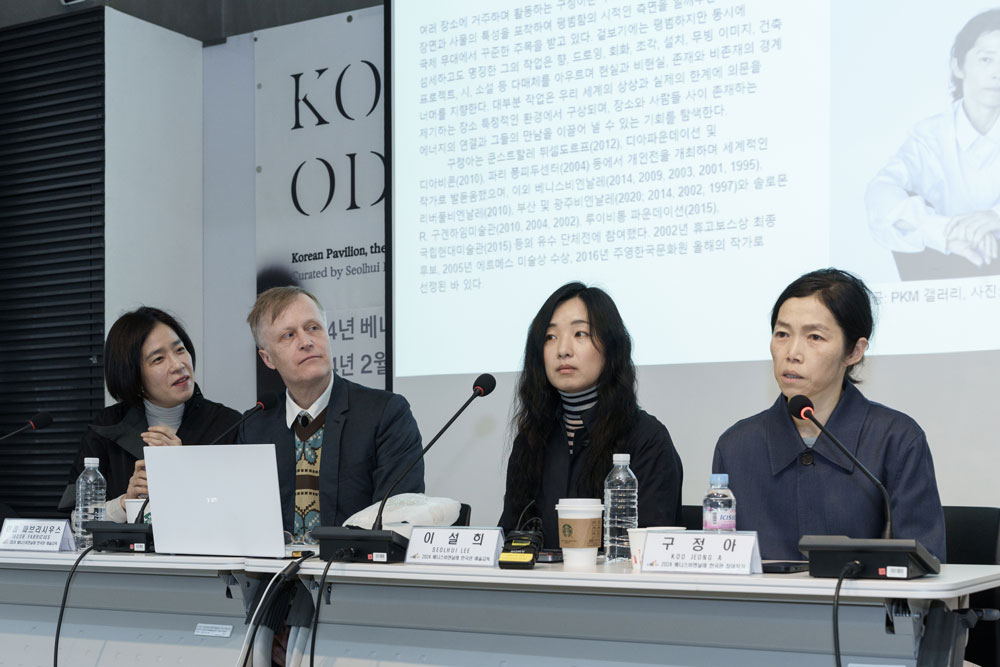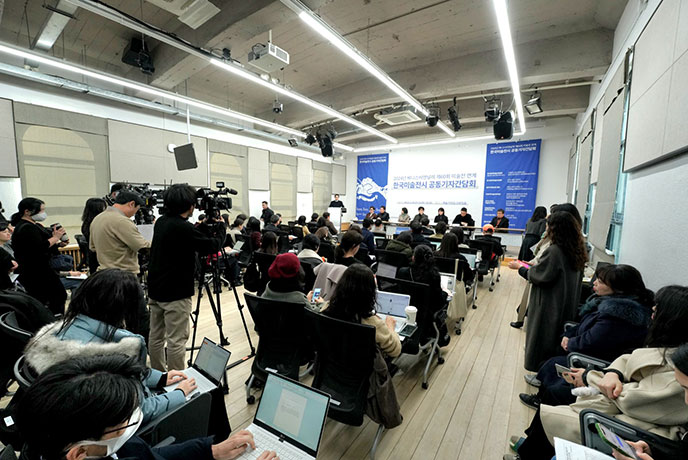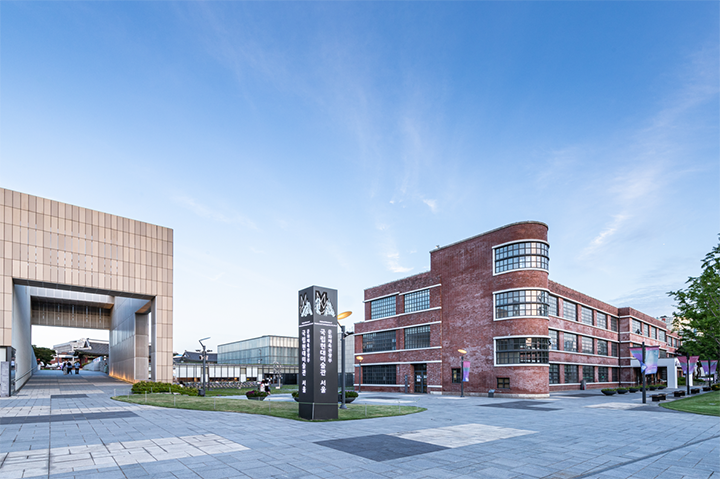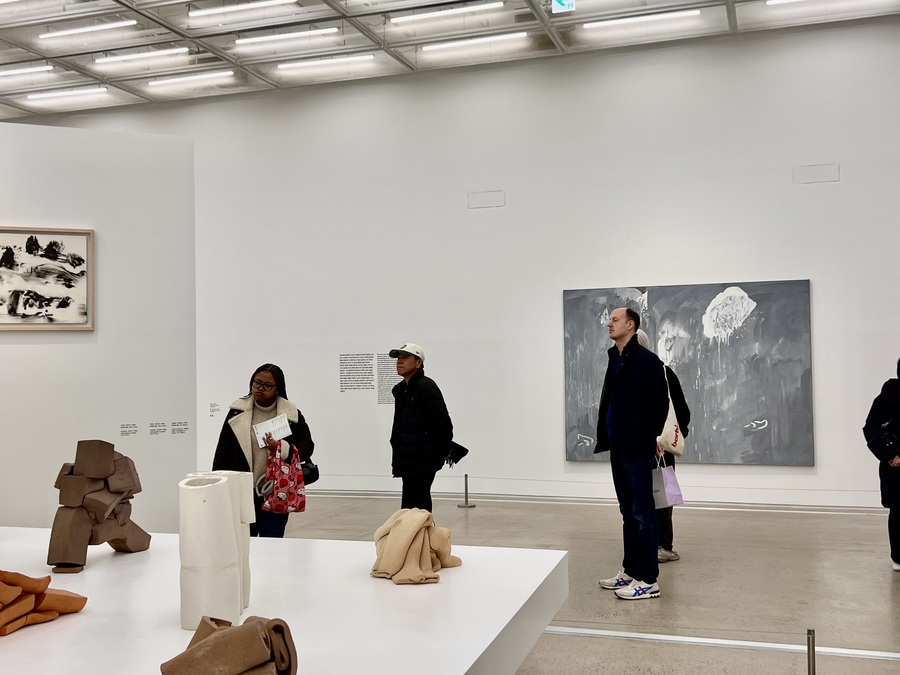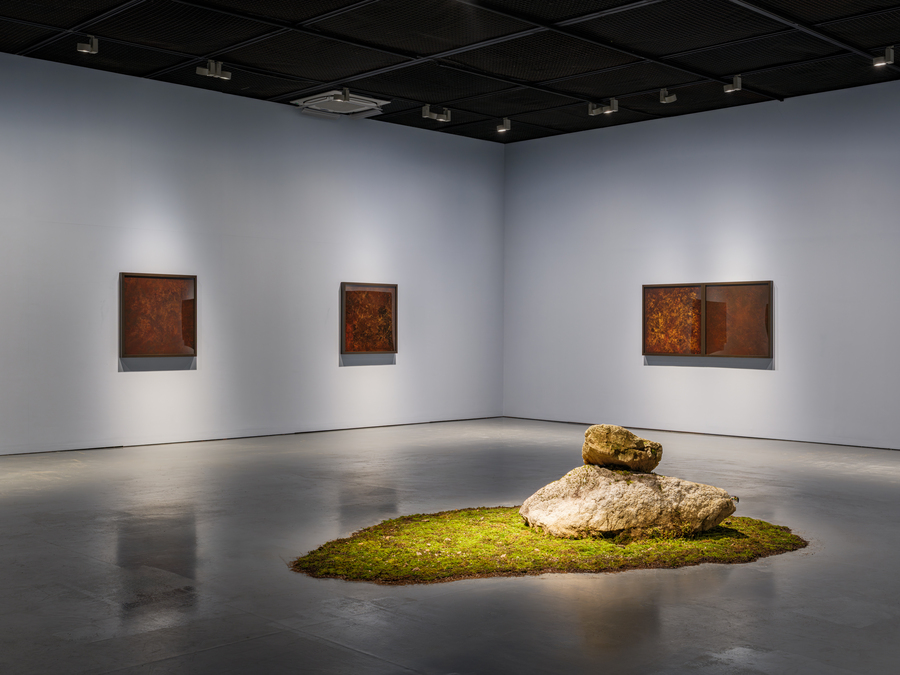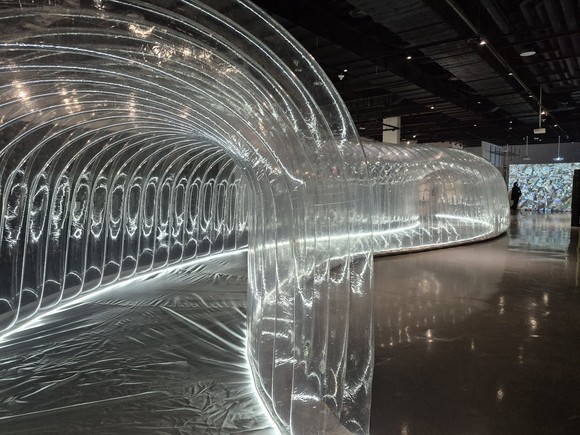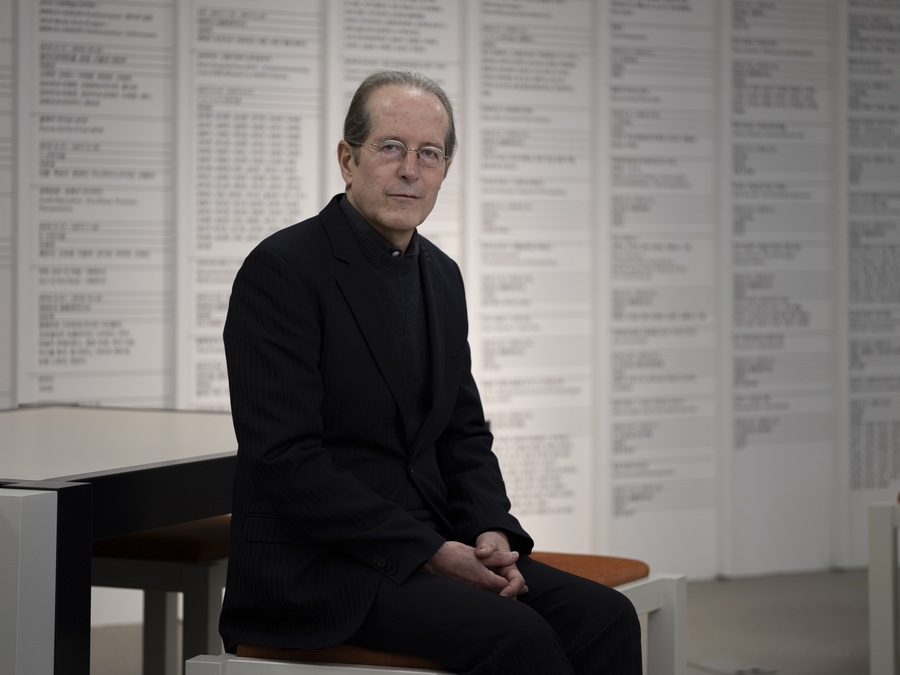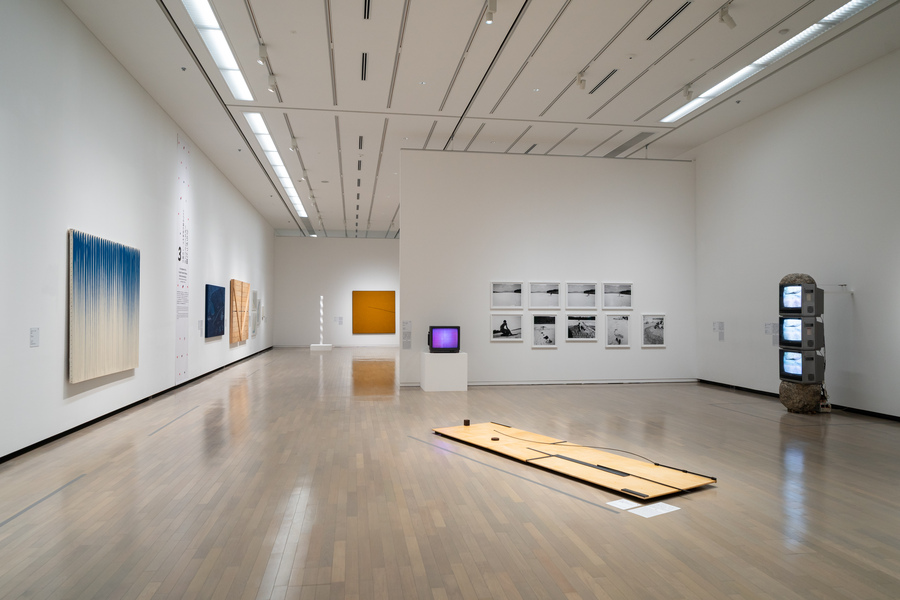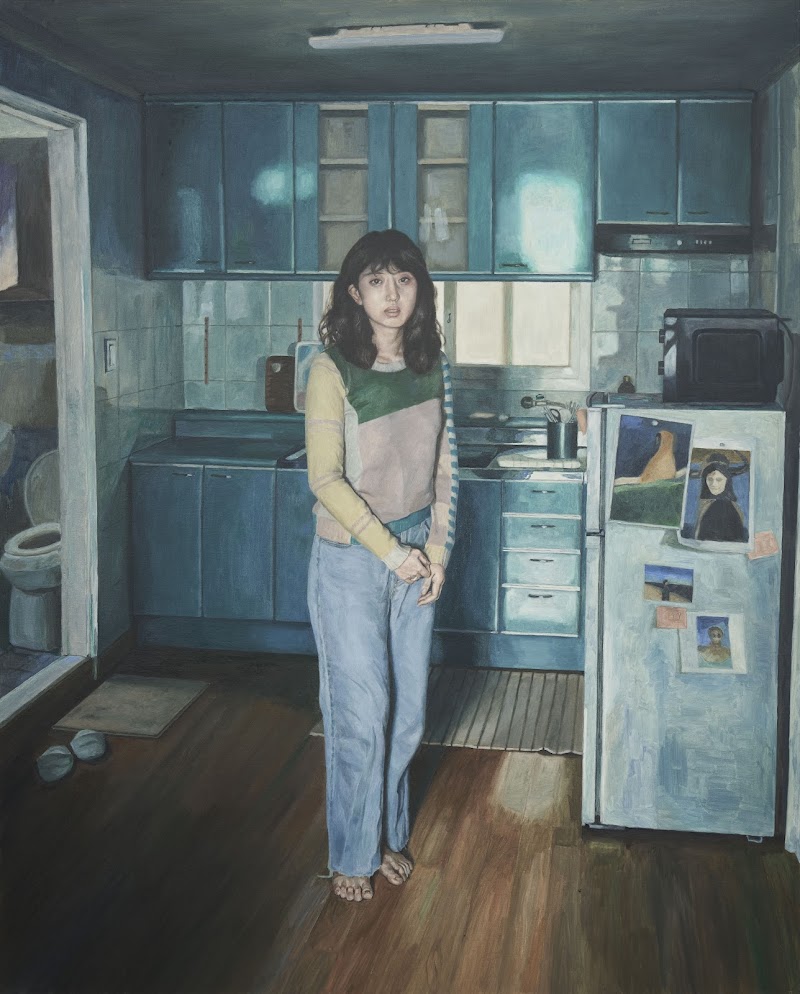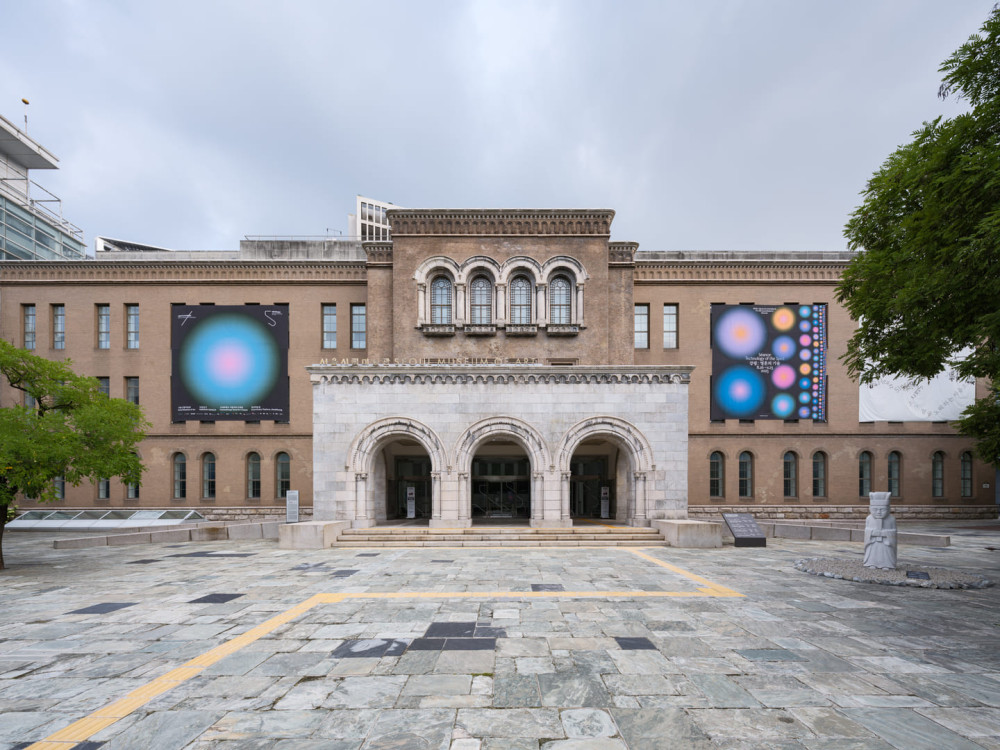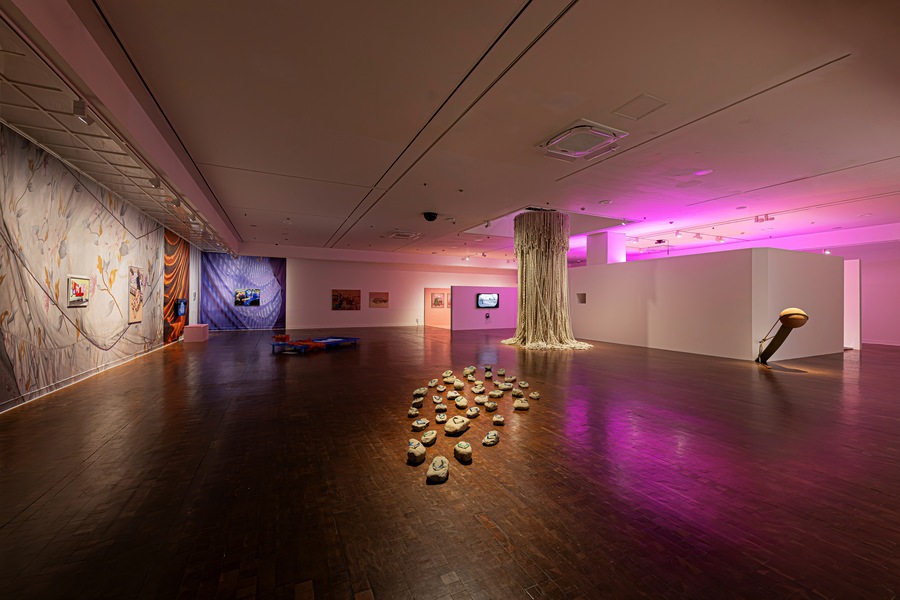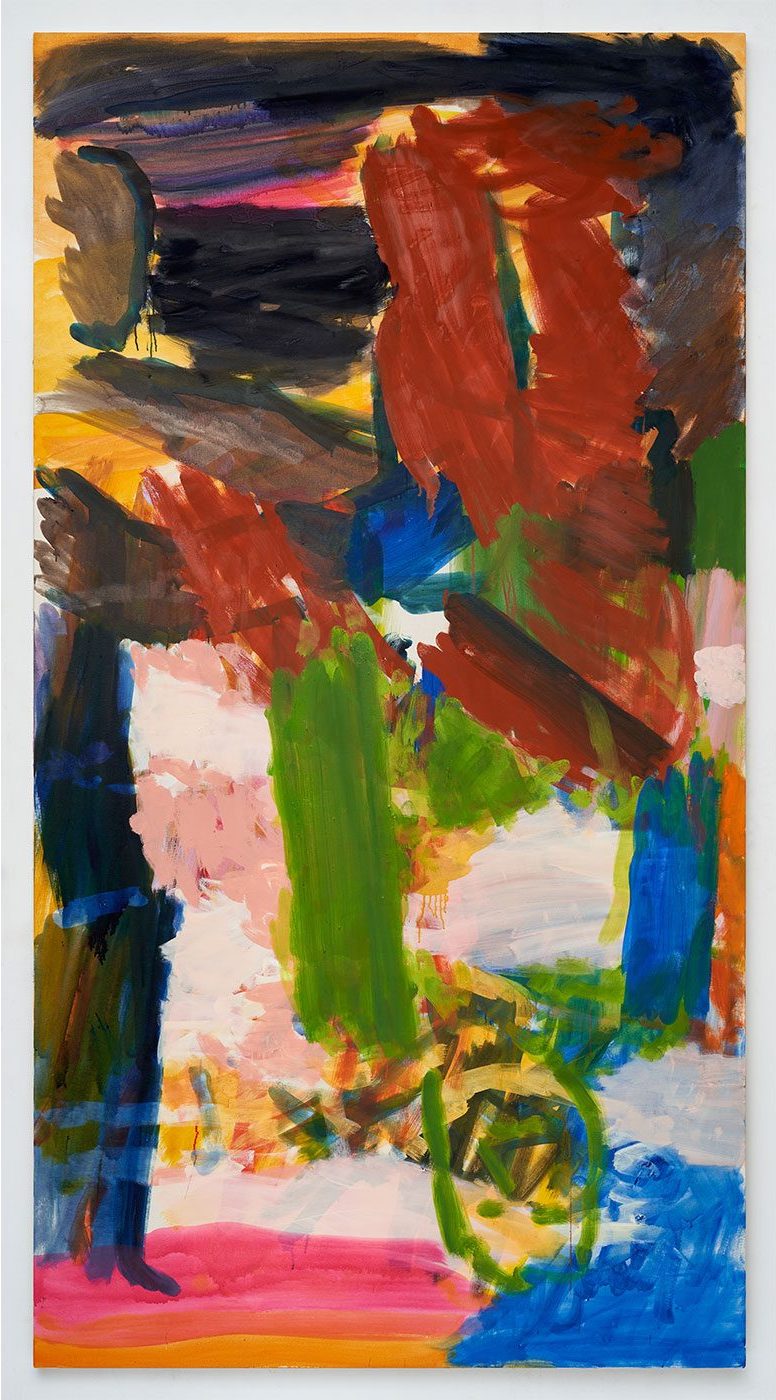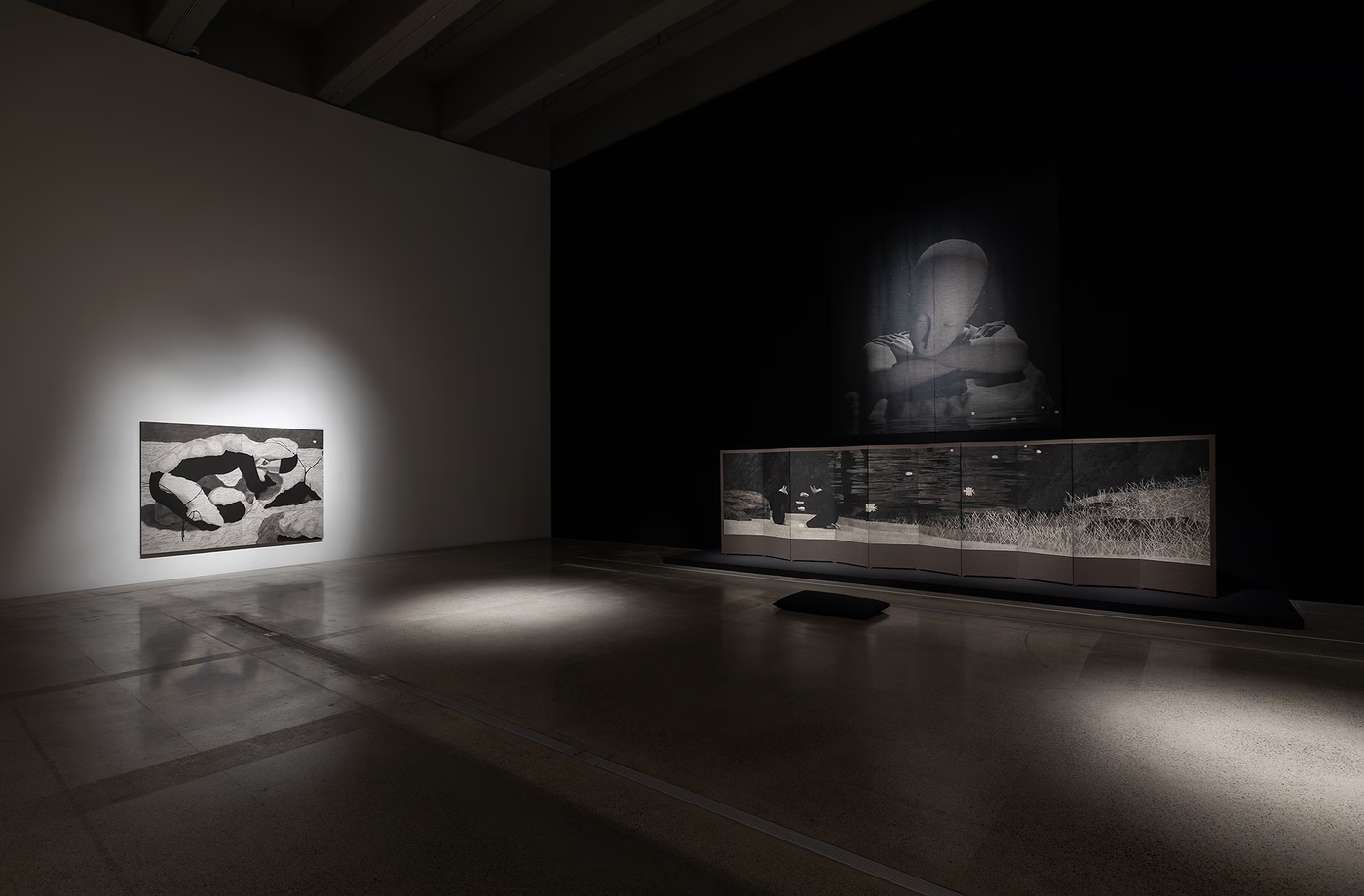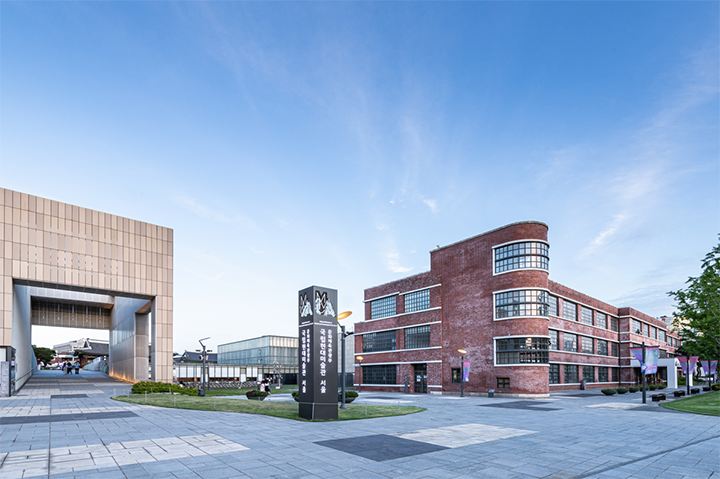
MMCA Seoul ©Park Jung Hoon
The National Museum of Modern and Contemporary Art, Korea (MMCA, director Kim Sunghee) held a press on January 9, where it announced plans for its intermediate-term direction and major projects for the years 2024 through 2026, along with exhibitions for the year 2024.
MMCA is working to bolster its social and public service role and its stature as Korea’s only national art museum. As its primary task, it focuses on establishing a robust foundation as an art institution. Part of this involves plans to strengthen the performance of MMCA’s basic museum functions, such as exhibitions, collection management, and education, while using the foundation established to pursue various projects from a long-term perspective. To this end, it prioritizes re-establishing the stature of Korean modern and contemporary art through substantive exhibition planning, along with establishing a high-quality collection based on systematicresearch on its items and providing various educational projects to interpret and share those findings. As it honors its three major roles as an art museum, it will contribute to promoting cooperative Korean and overseas research and support the diffusion of art and culture to meet local and cultural demand.
As part of its three-year intermediate-term plan for 2024 to 2026, the museum will be engaging in six key tasks. First, it is working to carry out systematic research and energize discourse on Korea’s modern and contemporary art history through ‘Re-Project : Research-Based Korean Modern and Contemporary Art’; to contribute to broadening Korean art’s international influence through ‘Large-Scale Expansions in MMCA’s International Art Collection’; to support the global growth of Korean art at an unprecedented moment of resurgence with the ‘MMCA Research Fellowship’; and to blend science and art in the era of artificial intelligence (AI) and support its own growth as a sustainable, future-oriented museum through ‘Smart Museum System Establishment’, ‘Barrier-Free Museum for Everyone’, and ‘Ecology Platform Practice’.
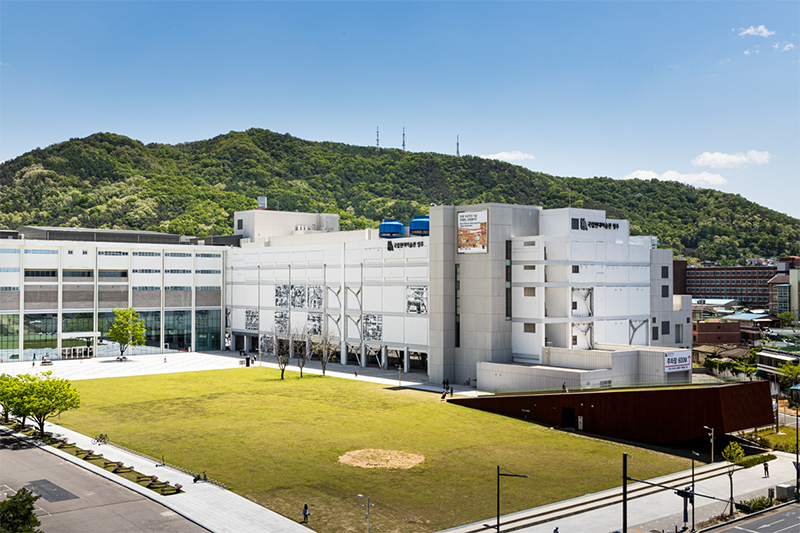
MMCA Cheongju ©Park Jung Hoon
I. Re-Project: Research-Based Korean Modern and Contemporary Art
During 2024, MMCA will be implementing ‘Re-Project: Research-Based Korean Modern and Contemporary Art (working title)’ as an effort to carry out systematic research and energize discourse on Korean modern and contemporary art history. Operated through the collaborative and self-directed research efforts of museum curators, this project will set to be invigorated in two key areas: conducting in-depth research into renowned and master artists representing Korean art and undertaking detailed studies on the history of modern and contemporary Korean art, analyzing its progression from both macro and micro perspectives. The outcomes of these research approaches inform the development of carefully curated individual and historical exhibitions. These exhibitions are designed to harmoniously align with the distinct characteristics of MMCA Seoul, MMCA Gwacheon, MMCA Deoksugung, and MMCA Cheongju. Each exhibition is further enriched by incorporating academic programs based on ongoing research and collaborations, adding depth to the visitor experience.
II. Large-Scale Expansions in MMCA’s International Art Collection
Through its discovery and acquisition of outstanding Korean and international works of great value to art history, MMCA has established a collection of around 11,500 items. Of that number, however, around 90 percent is focused on Korean art. Starting this year, while working to boost its capabilities as an institution engaged with the global art world, MMCA aims to purse a major expansion in its international collection through an intermediate- to long-term acquisition plan. The museum plans to actively encourage sponsorship for international art collection in cooperation with the sponsorship association, focus on securing a special budget for collecting representative works of major artists, and gradually increase the proportion of international art in the annual collection budget. Through such steps, MMCA aims to acquire and introduce work by internationally recognized artists active on the global stage, artists whose work has been recognized for its aesthetic value, and artists who have previously been the focus of MMCA exhibitions or research.
III. MMCA Research Fellowship
Seeking to go beyond exhibitions of Korean art to contribute to the global diffusion of discourse, MMCA is expanding its international exchange programs with Korean and overseas researchers and artists and diversifying its joint international academic programs. One particular component of this is the ‘MMCA Research Fellowship’, which is based on international art researcher exchange activities that contribute to boosting research into Korean art. With active linkages to MMCA’s collection, archives, and human resources, this project is completing its preparatory process this year. In 2025, the first researchers are to be selected for full-scale research support, and the project is to be expanded into associated public programs, including academic and other publications and seminars. In addition to their use for various MMCA activities such as the Korean art research website ‘MMCA Research Lab’, the results of this project will also contribute to forming an active network of established and next-generation researchers in Korea and overseas.
IV. Smart Museum System Management
MMCA is working to lay the foundation for pioneering future-oriented museum management through its adoption of systems that combine art with the science and technology of the AI era. Based on cooperation with various expert institutions and their technical suggestions, the museum plans to introduce an ‘Integrated Gallery Management System’ within the year to address issues with visitor crowding in galleries and ensure the safety of the artwork. MMCA also plans to effect a transformation in its prevention and maintenance systems with the construction of a ‘Smart Artwork Conservation System’, which uses AI technology to learn about the different types of damage that artistic materials can sustain and predict when such damage might occur. A ‘Digital Twin-Based Integrated Storage Management System’ is to be Introduced by 2026, with the aim of applying digital twin technology to automatically manage artwork flows into and out of storage and optimize storage space use.
V. Barrier-Free Museum for Everyone
During 2024, MMCA plans to introduce ‘Barrier Free Kiosks’, which will contribute to improving the exhibition experience for digitally underserved individuals such as people with disabilities and the elderly through features such as Braille inputting and outputting devices, sign language recognition technology, and height adjustment. ‘Customized Art Museum Guide Services’ for smartphones are being instituted to assist individuals with visual and mobility-related impairments. The MMCA smartphone app will be incorporating the latest indoor positioning technology, providing uninterrupted exhibition information services including gallery and amenity guides for a given location as well as spoken explanations of the artwork. MMCA will also be cooperating with experts and groups working in disability-related areas to create ‘Specialized Art Appreciation Programs for Different Disability Types’, which will be available through a reservation system throughout the year. It plans to substantially expand its ‘Information to Support Exhibition Appreciation by Persons with Disabilities’ (including screen information explanations and materials available in sign language or tactile media). A ‘Seminar on Improvements to Cultural Access for Persons with Disabilities’ will be taking place during the second half of the year. Existing programs and the Integrated Program for People with and without Disabilities are to be expanded through active sharing and cooperation with local art museums so that MMCA content is made more widely available to the Korean public. The second half of the year will see the “International Symposium What Do Museums Do?: Museum, Public Service, and Values”, where Korean and overseas scholars and researchers will come together to explore the topic of “the art museum’s public role,” contributing to further enhancement of the art museum’s values and functions.
VI. Ecology Platform Practice
Since last year, MMCA has been working to minimize paper ticket issuance and establish a more sustainable art museum culture through the introduction of a smart ticketing system and QR-based admissions and leaflets. In keeping with the exhibition guidelines based on a 3R principle (reduce, recycle, reuse), the museum has actively worked to reduce carbon emissions through approaches such as the reuse of gallery structures and their transfer to relevant institutions. By 2025, it plans to complete the establishment of an internal ‘Carbon Management Platform’ system, which will calculate the carbon emissions associated with the museum’s exhibition operations and facility management. This will allow for the selection of data-based, scientific reduction targets and for the practicing of sustainable management and carbon reductions. The MMCA is also undertaking a “healthy, eco-friendly art museum” campaign with the audience through its ‘MMCA Run Ditto’ project. Encouraging audiences to access the museum on foot, it matches their accumulated “run points” with tree-planting donations campaign that will be taking place twice in 2024. MMCA’s practical steps toward a sustainable art museum culture will also be actively shared with art institutions in different localities through various online and offline methods.

“Korea Artist Prize 2023” Installation view at MMCA Seoul ©MMCA
In 2024, MMCA will first focus on expanding Korean art to the rest of the world through active interchange efforts, including international Asia-related special exhibitions and joint exhibitions organized with overseas institutions. At MMCA, the international special exhibition “Connecting Bodies: Asian Women Artists” will focus on art created by Asian women since the 1960s from a transnational and comparative cultural standpoint; adopting a contemporary perspective, it examines the multilayered manifestations of feminist art, a subject which has been receiving new attention from the global art world in recent years. At MMCA Deoksugung, “Modern and Contemporary painting of Korea and China” will be presented as the joint curation effort of MMCA and the National Art Museum of China. In addition, the exhibition “Only the Young: Experimental Art in Korea, 1960s–1970s”, which was successfully staged at the Solomon R. Guggenheim Museum in New York, will be brought to the Hammer Museum in Los Angeles in February, while “The Modern and Contemporary Korean Writing”, which drew a strong response at MMCA Deoksugung, will be visiting the Taoyuan Museum of Fine Arts in Taiwan.
Second, the department strives to explore and highlight the diversity and expansiveness of contemporary Korean art. It continuously focuses on bringing attention to artists and works in often underrepresented fields such as landscaping, ceramics, and embroidery. “Lee Kang So” showcases the works of representative Korean artist Lee Kang So, by highlighting how his unique artistic language and constant experimentation attempt to unravel the diverse endeavors and communications in contemporary Korean art history. “Jung Young Sun, Landscape Architect” focuses on the lifelong dedication for land forming by Jung Young Sun as Korea’s first female licensed landscape architect. “Korean Embroidery in Modern Times” adopts a diachronic perspective on Korean embroidery, exploring a range of areas including modernization, tradition, pure art and crafts, artisans, labor, lifestyles, and industry. “Ceramics in Life and Arts: Modern Ceramics in Korea since 1950’s” looks at modern Korean ceramic artists since the 1950s, including Chung Kyu, Yu Geunhyeong, Kim Sukwhan, and Shin Sangho.
Third, the museum will be presenting themed exhibitions on timely topics that connect with contemporary social contexts, including posthuman concepts, AI, and residential culture. “What an Artificial World” explores AI’s influences on society and art, while “What Things Dream About” offers an image of a future co-created by human and non-human beings in a posthuman era. “Performing Home: The Art of Living” will adopt a critical perspective on contemporary Korean society and its increasingly severe residential issues. Using architecture’s “home” as a medium, the exhibition recalls values associated with life in the post-2000 era, through contemporary architecture and residential culture of the time.
Fourth, MMCA will contribute to expanding the horizons of art history by researching and spotlighting its collection under a more three-dimensional approach. “What’s the Time in Your World?” will use the camera lens to consider the hidden sides to everyday landscapes. “Variable Collection” will offer a multifaceted exploration of the characteristics of contemporary art and the life cycles of collection items that are passed on to future generations. “1960s–70’s Figurative Paintings in MMCA Donated Collection” will focus on figurative painting among the artworks recently donated to the museum. “Co-existence” will present examples of international art in the new media genre from the MMCA collection. “On Late Style” will examine style in the later periods of leading figures in Korea’s modern and contemporary art history in order to achieve a fuller understanding of these master artists’ bodies of work. “Technic of the naming” will use the various classifications applied to artwork titles to pose questions about viewing environments and the appreciation and understanding of artwork.
Fifth, MMCA is broadening the experience of contemporary art through diverse programs in areas that include performances, installations, workshops, documentaries, and virtual reality-based film, while actively supporting artists in their creative activities through projects spotlighting emerging and established creators. “Korea Artist Prize 2024” will be the latest edition of one of the Korean art world’s premier award systems, which also serves to share contemporary art discourse. “PROJECT HASHTAG 2024” is designed to discover young creative teams representing the next generation and support them in experimental and challenging collaborations. Other exhibitions that will contribute to an expanded contemporary art experience include “MMCA Film and Video 2024, MMCA Performing Arts, A Very Old Hybrid”, and “History, Newly Written–VR Films from Canada and South Korea”.



